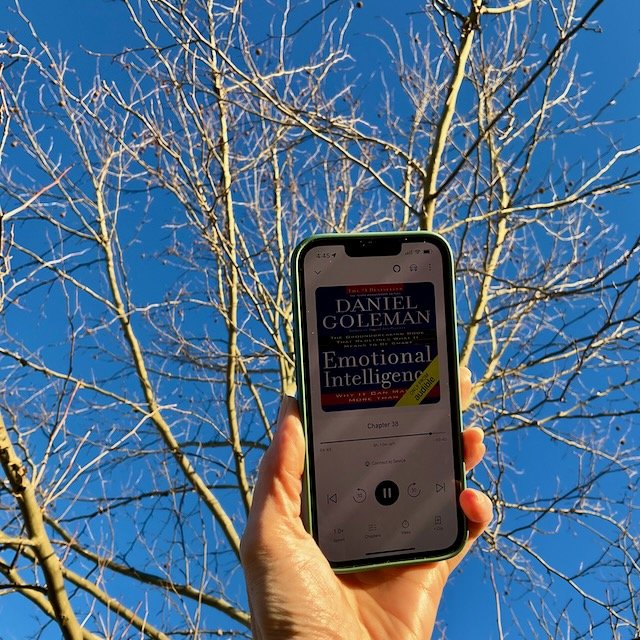Emotional Intelligence: Why It Can Matter More Than IQ (by Daniel Goleman)
The study of Emotional Intelligence has been on my radar for a long time as a subject I wanted to learn more about. I was turned on to the book Emotional Intelligence: Why It Can Matter More Than IQ by Daniel Goleman while listening to podcasts on the Be Here Now Network. Danny Goleman has been a guest speaker on the Mindrolling and Metta Hour podcasts. After listening to Danny talk about EI and how it correlates with the teachings of Buddhism and Hinduism, I purchased this audiobook through Audible.
It’s a lengthy book that begins with detailed definitions of EI and explains the difference between EI and IQ. Naturally, Goleman highlighted the benefits of EI. Once a thorough foundation is laid, Goleman applies EI to many emotions people experience. I am only touching on the topics that were of my personal interest.
Anger or rage, chronic worry, and sadness we common emotions discussed throughout the book. Regarding sadness, Goleman shared what research has discovered as the most common effective coping strategies; reading, socializing, and shopping. He explained these activities disrupt the thoughts that perpetuate sadness. Some less effective coping strategies are watching television and eating. Research shows that people felt as sad if not more sad after watching television. Once the television viewing is over, one’s thoughts easily return to the patterns that contributed to sadness. One can still think about the sadness while eating.
Goleman reported on studies that explored the demonstration of empathy by infants and young children, to sex offenders and psychopaths, and in spousal relationships. There’s a lot of fascinating information in this section. I wasn’t surprised by the absence of empathy in sex offenders and psychopaths, but by how empathy is displayed in such young children. It had me wondering if we lose our level of empathy over time? Is it something we can rekindle or grow?
Of most relevance to me, due to my current struggles at my job, is the chapter on the unhealthy impact of stress, anger, depression. The information that Goleman presents is not new; however, the way he explains how unpleasant emotions, especially stress, affects our bodies got my attention. While my daily practices of yoga, meditation, and time in nature are helpful coping strategies, I engaged in a conversation with someone in my support system that helped me explore additional options and possible solutions for the problem at hand. I thank the universe for putting this book in my hands at a moment when I most need it.
As I previously mentioned, I purchased this audiobook from Audible. I did not like the narration at all. I know that narrators voices his everyone’s ears differently and this one wasn’t for me. I wish I had gone with the physical book instead.
As a participant in the Amazon Associates Program, I earn from qualifying purchases linked back to Amazon. Every penny earned allows me to blog about books and keeps this site running.


